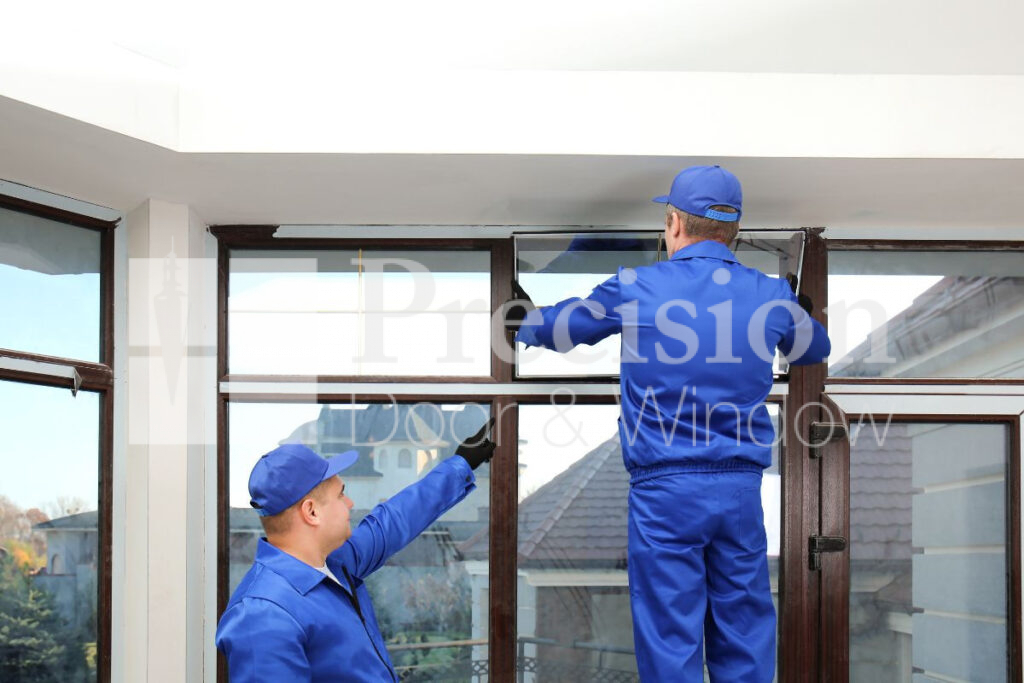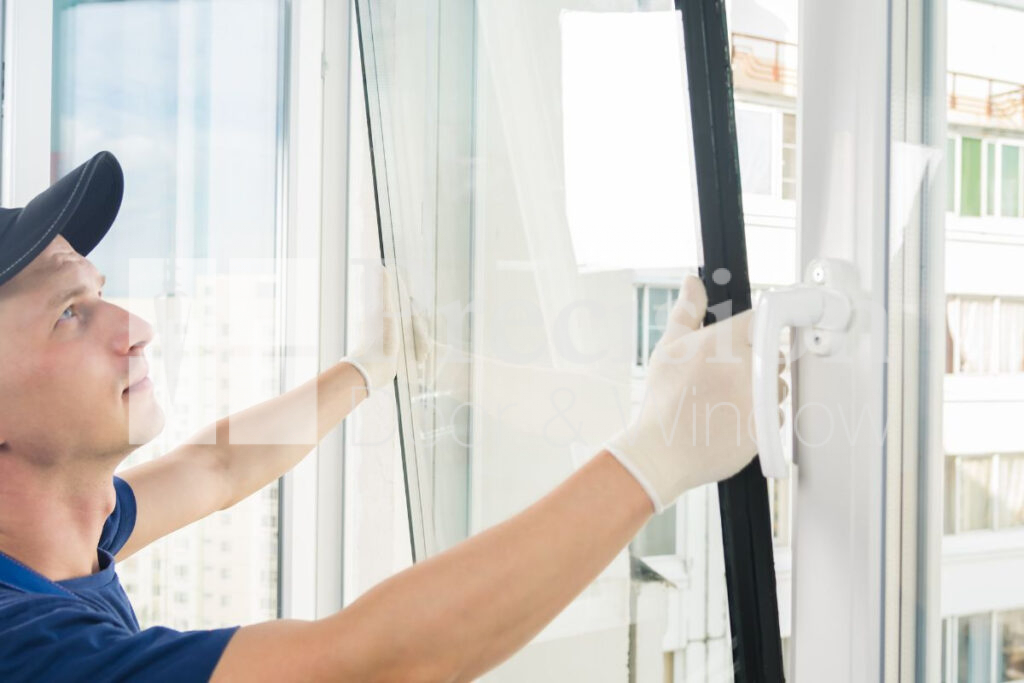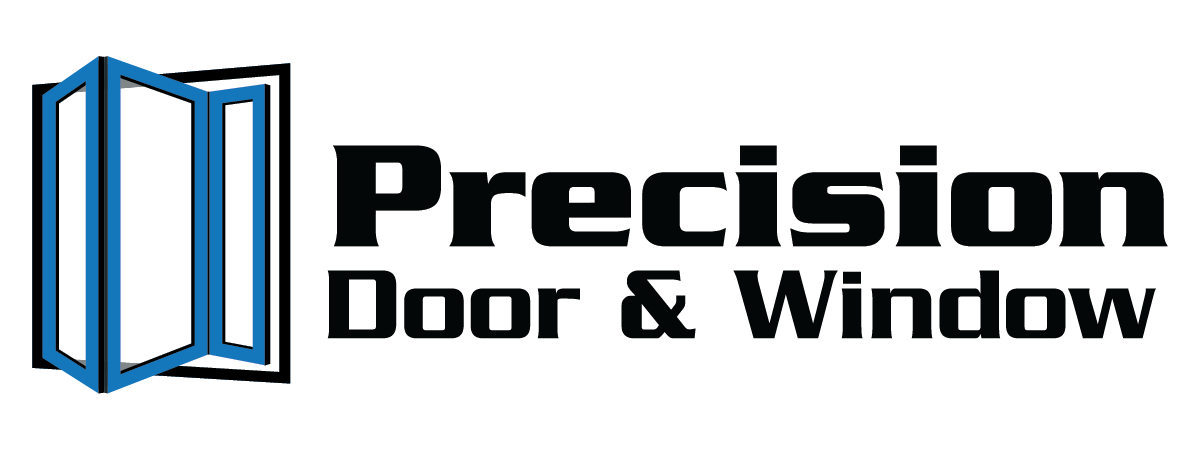Homeowner’s insurance typically covers window damage and replacement under specific circumstances. If your windows are old or damaged, or you just need an upgrade, this blog post is for you. At Precision Door & Window, we’re here to help you understand whether your homeowner’s insurance will cover the cost of your window replacement.
After reading, you’ll have a better understanding on:
- Common incidents where homeowner’s insurance covers window replacements
- Insurance deductibles and payouts
- Examples when homeowner’s insurance may not cover the cost
- What to do if your insurance company does not provide enough coverage
Common Incidents Where Homeowner’s Insurance Covers A Window Replacement
Homeowner’s insurance only provides coverage for window replacements under specific circumstances, such as instances where the damage results from sudden or accidental circumstances. These circumstances typically include events such as hailstorms, fires, theft, or vandalism. However, several conditions must be met for a homeowner to be eligible for window replacement coverage:
#1 Damage from Covered Perils
The damage to the window must be a direct result of an incident explicitly covered by the insurance policy. This could include hail damage, fires, theft, or vandalism.
#2 Windows Covered by a Policy
The damaged window must be explicitly included in the list of items covered by the insurance policy. This could be part of the dwelling coverage, covering the main structure of the house, or other forms of structure coverage, which includes structures not attached to the main dwelling, such as a detached garage. Liability coverage may also apply in certain situations.
It’s important to note that while insurance may cover the cost of a window replacement, you may have to consider certain financial aspects.
Why Homeowners Might Be Charged
If your claim is approved, you might still need to pay a certain amount of money for the following reasons:

The Limitations Of Coverage
The insurance company may not cover the entire cost of replacing the window. There might be a maximum limit specified in the policy, and any expenses exceeding that limit would need to be handled by the homeowner.
Deductible Amount
Deductibles are a common feature in many different kinds of insurance, whether it is for your home, car, or medical needs. As the policyholder, you may be required to pay the deductible amount before the insurance payout is given. This is the initial amount that the homeowner must contribute, typically monthly, towards the repair or replacement cost, which varies with the type of policy.
The deductible serves several purposes:
#1 Risk Sharing
By requiring policyholders to contribute a certain amount towards a claim, insurance companies ensure that individuals have a financial stake in their coverage.
#2 Preventing Small Claims
Deductibles help prevent the submission of numerous small claims for minor damage, reducing administrative costs for both the insurer and the insured.
#3 Affordability of Premiums
Policies with higher deductibles often have lower premiums. This allows individuals to choose the level of risk they are willing to accept and adjust the insurance premium costs accordingly.
Being aware of these conditions and financial considerations will help you make more cost-effective decisions when filing a claim for window replacement under your homeowner’s insurance.
Examples Where Homeowner’s Insurance May Not Cover The Cost Of A Window Replacement

Homeowner’s insurance may not cover a window replacement in various situations, and it’s crucial for homeowners to be aware of these limitations. Here are some common scenarios where insurance coverage may not apply:
#1 Normal Wear and Tear
Insurance policies typically exclude coverage for window replacements due to the natural aging process or general wear and tear. This means that if windows deteriorate over time without a specific covered event causing the damage, the cost of replacement may not be covered.
#2 Home Maintenance Issues
If window damage is a result of poor installation, product failure, or other home maintenance issues, insurance may not cover the replacement costs. Ensuring proper installation and regular maintenance is the responsibility of the homeowner.
#3 Exclusions and Limitations
Insurance policies may contain specific exclusions for certain types of damage or renovations. For instance, damage from mold, termites, or other specified causes may not be covered. Reviewing the policy to understand these exclusions is crucial.
#3 Insufficient Coverage
Even if a claim is accepted, the insurance payout for window replacement may not cover the entire cost. Some policies may limit the reimbursement to the least expensive replacement window available, potentially leaving you responsible for additional expenses.
#4 Unoccupied or Vacant Homes
Insurance claims related to homes that are unoccupied, vacant, or not owner-occupied may be denied. Insurers often have specific requirements and conditions related to occupancy to mitigate risks and ensure proper maintenance.
To navigate these exclusions and limitations, it’s essential for you to thoroughly review your policy and assess if your insurance may cover your window replacement. If you have uncertainties or questions, consult with the insurance provider for clarification.
What To Do If Your Homeowner’s Insurance Does Not Cover A Window Replacement
If your homeowner’s insurance does not cover a window replacement, you may explore various financing options provided by reputable window replacement contractors. Here are some steps to consider:
#1 Contact Window Replacement Contractors
Reach out to several reputable window replacement contractors in your area. Ask them about their financing options for window replacement projects. Many contractors have partnerships with financing companies or offer in-house financing solutions.
#2 Inquire About Financing Plans and Loans
Discuss the financing plans and loans available, including interest rates, repayment terms, and any associated fees. Reputable contractors will provide transparent information about their services and offers to help you make an informed decision.
#3 Compare Financing Offers
Obtain financing quotes from multiple contractors and compare the terms. Look for competitive interest rates, flexible repayment terms, and any special promotions or discounts. Consider the overall cost of financing your window replacement project when evaluating the offers.
#4 Negotiate with Contractors
Discuss your budget constraints with the chosen contractor. Local contractors care about their reputation and local connections, so they may be willing to negotiate on pricing or offer flexible payment plans that align with your financial situation.
If you are looking to finance your window replacement project in Temecula, or the surrounding areas in Southern California, we’re here to help!
Discuss Your Window Replacement Needs With Trusted Experts!
At Precision Door & Window, we have a passionate and skilled team on board! We do our best to help our customers upgrade their homes with ease. If your homeowner’s insurance does not provide adequate coverage for window replacements, you can explore our flexible financing options without worrying about the cost. Call us at (951) 595-0126 to schedule a free consultation with one of our experts and choose the best financing option for your window replacement.

